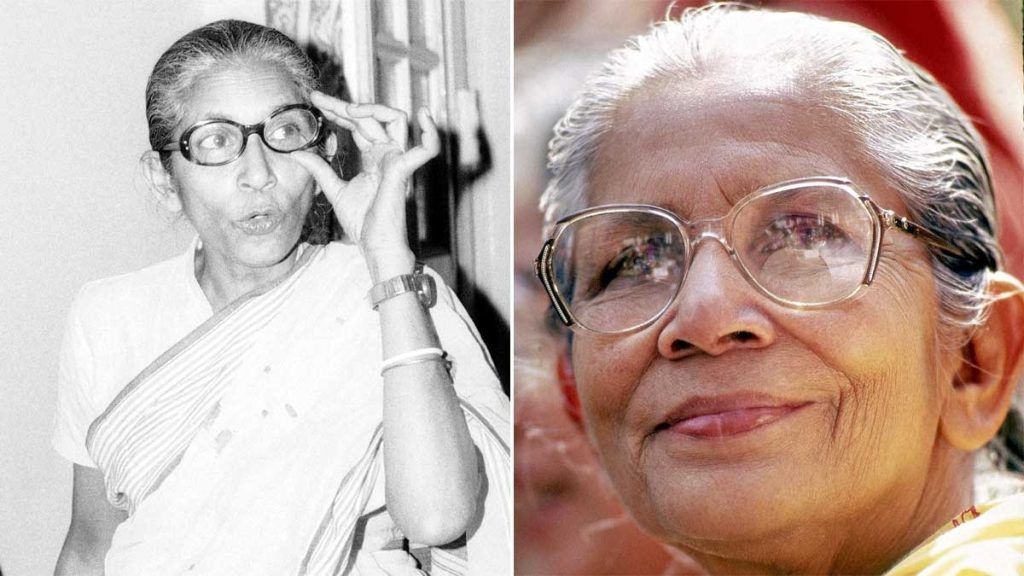
By Binoy Viswam
After a very long wait, the Women’s Reservation Bill has been passed by the Parliament. Everyone who knows about the history of the struggle for the enactment of the Women’s Reservation Bill would think about Comrade Geeta Mukherjee at this moment of victory. She was the unforgettable communist leader and a consistent fighter for women’s rights who took the passing of the women’s bill as a life mission. She was a true communist who believed that the tasks of the Indian revolution could not be fulfilled without the liberation of the women of the country. Thirty-three per cent participation of women in the Parliament and state legislatures is only the first step in that direction. Even for that first step to be accomplished, the democratic forces of the country had to wage consistent battles for decades. Passing the bill would be an impetus for the future struggles of women’s organisations and other democratic forces.
The BJP government is trying to capture the scene as the champion of women empowerment in the country. All their propaganda measures are tuned accordingly and they propagate that Narendra Modi is the crusader of women’s rights. Contrary to the hype being built, the fact is that Narendra Modi and his party are not at all sincere in the enactment of the Women’s Reservation Bill. They are ideologically and politically not in favour of women empowerment. Theirs is a male chauvinistic organisation controlled by the RSS in which women are denied even primary membership. Their ideology is guided by Manu Smriti, that preaches ‘Na sthree swathanthryam arhati’ (women do not deserve freedom)”. All of a sudden, their government became advocates of nari shakthi and wanted to crown it with this bill. Electoral compulsions were overpowering ideological convictions inside the BJP. Otherwise, how can they justify the long lapse of nine years, from 2014 to 2023, for initiating this bill?
The content of the Women’s Reservation Bill was shaped by the United Front government in 1996, in which the Communist Party of India also held important positions. It could not be passed then because of differences regarding reservations for the OBCs. A Joint Parliamentary Committee led by Geeta Mukherjee was formed on this behalf. Though it presented its report in record time, the move could not go forward as the bill had lapsed with the dissolution of the Lok Sabha. During the period of the Vajpayee government, there was no considerable progress in the matter. The UPA-I, in which the left parties played a significant role, took the matter seriously and the Women’s Reservation Bill found an important place in the Common Minimum Programme. During this government led by Dr Manmohan Singh, the bill was introduced on May 6, 2008. After Standing Committee scrutiny, the Rajya Sabha passed the bill on March 9, 2010. From that point, due to political uncertainties, there were no serious developments on the matter.
The Communist Party of India and the left forces have always been strongly committed to the Women’s Reservation Bill and continued its struggle along with the progressive women’s movement in the country. The National Federation of Indian Women (NFIW) took this struggle to the Supreme Court in 2021 in the form of a Public Interest Litigation. In the course of hearings in this important matter, the apex court also took a firm stand and cautioned the government of serious repercussions if the enactment of the bill is further delayed. Along with the 2024 elections, various factors compelled the BJP government to come forward with the legislation. Though this is a historical turning point in the direction of women’s empowerment, the BJP is not at all sincere in its implementation. In the name of the forthcoming census and delimitation of constituencies, the government attempts to delay its implementation for any further period of time. That should be resisted. The democratic forces of the country urged the government to implement the Women’s Reservation Bill without any further delay after the dissolution of the current Lok Sabha itself.
The experience with the reservation for women from one-third (33 per cent) to one-half (50 per cent) of the total seats in panchayats and local urban bodies has shown us how giving reservation to women in governance could bring in a positive change in our political landscape. This should be the fuel for furthering the objectives of gender-inclusive politics. The scope of the present Act should be extended to the Rajya Sabha, the state legislative councils as well as the assemblies of all Union Territories. Reservations for OBCs and minorities in the law-making bodies are vital for a meaningful representative democracy.
The Geeta Mukherjee committee report has also mentioned this aspect. The stage managers of the BJP, who now boast about the Act, have never applied their minds to such important questions till this moment. Their only concern is the capture of power in the name of nari shakthi. Sharing power with women and respect for social justice do not feature on their political and ideological agenda. They should be exposed before the people. From this first point of victory, the struggle for women’s empowerment has to go forward. The communists will hold their hands together with women and all other democratic forces in their struggle for justice and emancipation. (IPA Service)
The post It Was CPI Lok Sabha Member Geeta Mukherjee Who Pioneered Women’s Bill first appeared on Latest India news, analysis and reports on IPA Newspack.


